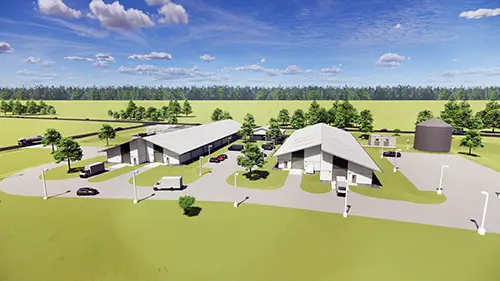On the campus of North Carolina State University in Raleigh, work has begun on a $100 million plant research facility for the US Department of Agriculture’s (USDA) Agricultural Research Service (ARS).
The USDA and the university’s College of Agriculture and Life Sciences held a groundbreaking ceremony to commemorate the facility’s construction. USDA has underscored its commitment to supporting scientific research that addresses agricultural challenges for the nation’s farmers and consumers.
Also Read: VinFast to Start Construction of US EV Factory in North Carolina
Commentary on the US Department of Agriculture research facility
“This investment in modern scientific infrastructure reflects USDA’s commitment to pioneering research and cutting-edge solutions. This ensures growers can be more productive, profitable, and resilient,” said Chavonda Jacobs-Young, PhD, chief scientist and undersecretary of Agriculture for Research, Education, and Economics. “It also emphasises the significance of our collaboration with NC State in bringing cutting-edge scientific computing to this campus. This will help expand the frontier of agricultural science.” The facility will contain 30 to 40 ARS and NC State researchers. They will perform research on corn, soybeans, wheat, cotton and peanuts. Further, when finished, the 51,296-square-foot, single-story structure will have processing rooms, offices, and research spaces organised in crop-specific wings.
“The impact of agriculture and agribusiness in North Carolina exceeds $100 billion,” NC State Chancellor Randy Woodson remarked. “We’re thrilled to be collaborating with the USDA’s Agricultural Research Service on this facility. Furthermore, their solutions-driven approach for crops are important economic drivers in the state.”
The United States Department of Agriculture (USDA) is the federal executive branch in charge of drafting and enforcing federal laws governing agriculture, forestry, rural economic development, and food. Its goals include meeting the demands of commercial farming and animal food production, and promoting agricultural commerce and production. Additionally, it ensures food safety, protects natural resources, and fosters rural communities.They work to alleviate hunger in the United States and across the world.
